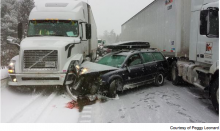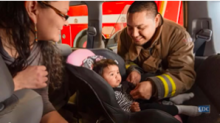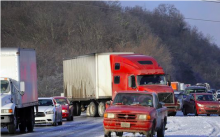Accident Data Center focuses on providing information and resources for people who have been injured, and for the families of those killed, to make decisions and get help. While the majority of accidents we report on are car crashes, we also see all other types of accidents including bicycle, pedestrian, boating, commercial trucking, aircraft, and motorcycle accidents
Some general accident statistics illustrate why Accident Data Center exists in the first place:
Fatality accidents in 2013 nationally:
- There were 30,057 fatal crashes with 32,719 people killed;
- Fatality rate per 100,000 population was 10.35;
- Rural fatal injuries comprised 54% of all fatal injuries;
- There were 90 fatalities per day;
- There were 9,158 fatal crashes related to alcohol impairment; 28 people died per day in DUI crashes;
- 49% of people killed in accidents were unrestrained with safety belts.
Injury accidents in 2013 nationally:
- There were 5,687,000 police reported crashes with 2,313,000 people reported injured;
- Injury rate per 100,000 population was 732;
- There were 6,337 people injured per day.
While there have been great improvements made in overall safety statistics over the years, it is our wish that these accident numbers are brought down to zero. Until then, Accident Data Center will strive to provide up-to-date information, resources, and support for all those involved in accidents.







